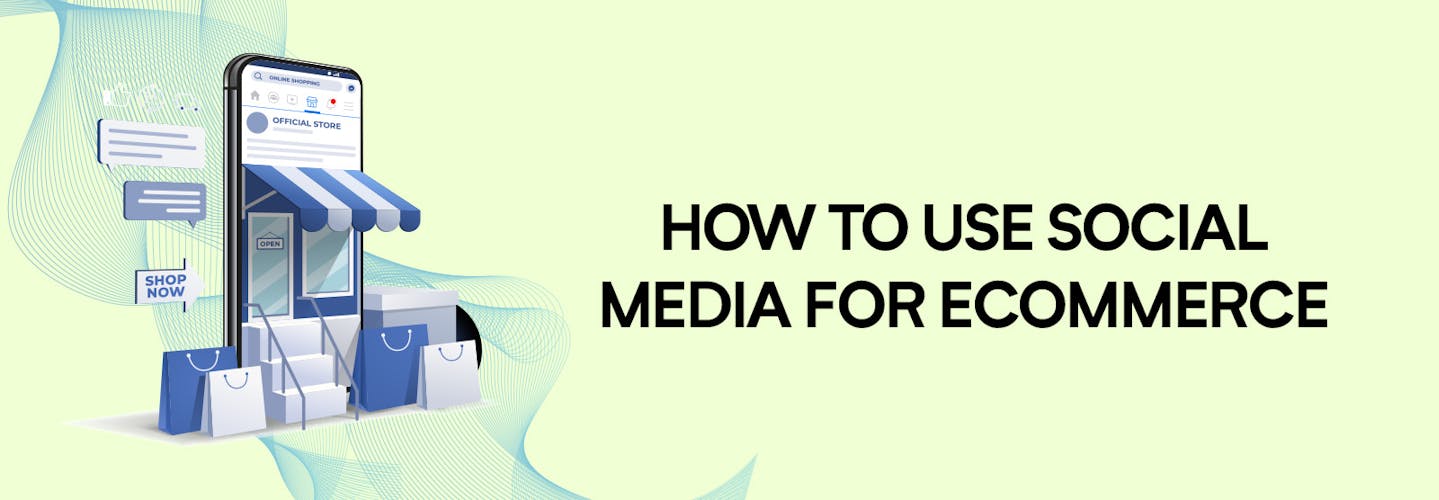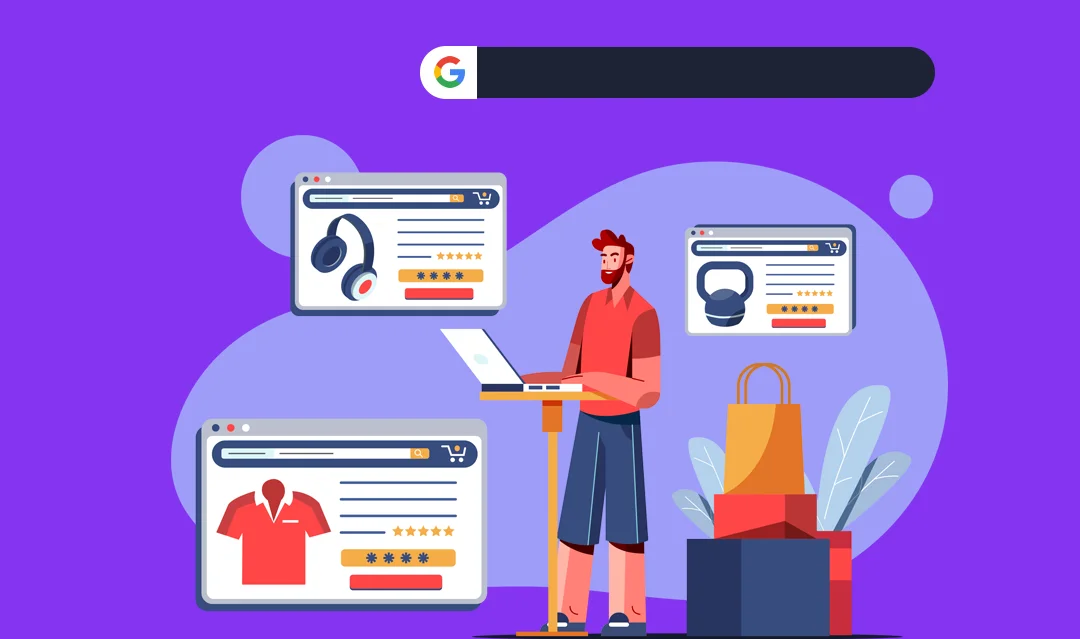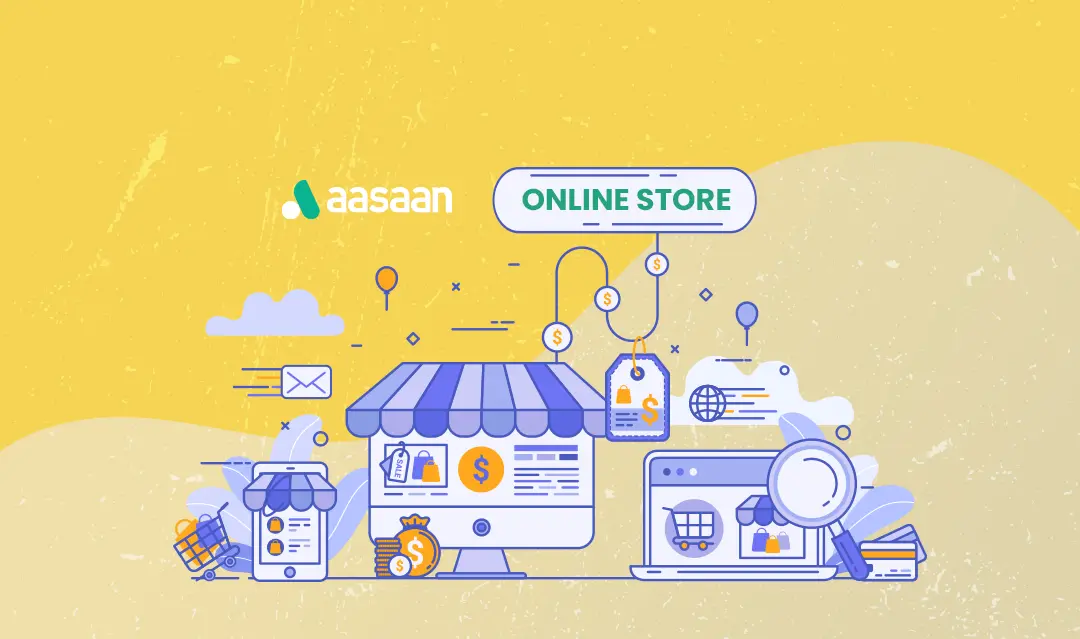
How to Use Social Media for Ecommerce ? A Guide to Boost Your Online Sales
Social media has become an essential tool for ecommerce businesses to connect with customers and drive sales.
With over 4.2 billion active social media users worldwide, social media offers a vast potential audience for ecommerce businesses. However, with so many social media platforms and strategies to choose from, it can be overwhelming to know where to start.
In this guide, we will provide an in-depth overview of how to use social media for ecommerce success.
We will cover topics such as choosing the right social media platform, creating a social media strategy, building a strong brand presence, and maximizing sales through social media.
Additionally, we will discuss best practices for social media for ecommerce, including consistency in posting and engagement, A/B testing and experimentation, and staying up to date with social media trends.
Whether you’re a new ecommerce business looking to establish a social media presence or a seasoned seller looking to optimize your social media strategy, this guide has something for you. Let’s dive in and explore how to use social media for ecommerce success!
I. Choosing the Right Social Media Platform
Popular social media platforms for ecommerce include Facebook, Instagram, Twitter, Pinterest, and LinkedIn.
A. Factors to consider when choosing a social media platform for ecommerce:
- Demographics: Different social media platforms have different user demographics. For example, Instagram and Pinterest are popular among younger female audiences, while LinkedIn is more commonly used by professionals and businesses.
- Business goals: Businesses should consider their goals and objectives for using social media, such as increasing brand awareness, driving traffic to their website, or generating sales.
- Type of products or services: Some social media platforms may be better suited for certain types of products or services.
For example, visually-driven products like fashion and home decor may perform better on Instagram or Pinterest, while B2B products may be better suited for LinkedIn. - Evaluating the pros and cons of each social media platform: Once businesses have identified their goals and target audience, they should evaluate the pros and cons of each social media platform to determine which one(s) best align with their needs.
For example, Facebook has a large user base and offers robust advertising options, but may not be as effective for reaching younger audiences.
II. Creating a Social Media Strategy for Ecommerce
A. Defining Social Media Goals:
To create an effective social media strategy, it’s essential to define your ecommerce business goals.
For example, do you want to increase brand awareness, drive more traffic to your website, or generate more sales? Defining your goals will help you create a targeted strategy and ensure that your social media efforts align with your business objectives.
B. Identifying the Target Audience:
Understanding your target audience is critical when developing a social media strategy. This includes identifying their interests, behaviors, and demographics, such as age, gender, and location.
By understanding your target audience, you can tailor your content and messaging to resonate with them and increase engagement.
C. Creating a Content Strategy:
To engage your audience and drive conversions, it’s important to create a thoughtful content strategy. This includes:
- Types of Content: Depending on your audience and business goals, you may want to create a mix of content types, including product images, lifestyle photos, videos, blog posts, and more.
- Frequency of Posting: Consistency is key when it comes to social media. You should aim to post regularly and at times when your audience is most active.
- Tone and Voice: The tone and voice of your content should align with your brand persona and target audience. Consider whether you want your content to be humorous, educational, or inspiring, for example.
D. Setting a Budget for Social Media Advertising:
While organic social media efforts can be effective, paid social media advertising can help amplify your reach and drive more conversions.
When setting a budget, consider your business goals and the platforms where your target audience is most active.
E. Tracking and Analyzing Metrics:
To evaluate the success of your social media strategy, it’s important to track and analyze metrics, such as engagement rates, website traffic, and conversions. This will help you identify what’s working well and what needs improvement.

III. Building a Strong Brand Presence on Social Media
A. Creating a Brand Persona:
Developing a clear brand persona will help you create consistent messaging and visuals across your social media channels. Consider your brand values, personality, and target audience when crafting your brand persona.
B. Consistency in Branding:
Consistency in branding is key to building brand recognition and trust. Ensure that your brand visuals, messaging, and voice are consistent across all social media channels.
C. Creating Shareable Content:
Creating shareable content can help increase brand awareness and engagement on social media. Consider incorporating visually appealing images, user-generated content, and interactive elements, such as polls and quizzes.
- Visual Content: High-quality images and videos can help showcase your products and create a strong visual brand identity.
- User-Generated Content: Encouraging customers to share photos and testimonials of your products can increase engagement and build trust.
- Interactive Content: Interactive elements, such as polls and quizzes, can be a fun way to engage your audience and encourage social sharing.
D. Utilizing Influencers and Brand Ambassadors:
Partnering with influencers and brand ambassadors can help expand your reach and build credibility. Consider partnering with individuals who align with your brand values and target audience.
IV. Using Social Media for Customer Service and Support
A. Responding to Customer Inquiries and Complaints:
Social media can be an effective channel for customer service and support. Responding promptly and professionally to customer inquiries and complaints can help build customer loyalty and trust.
B. Utilizing Chatbots for Customer Support:
Chatbots can be a helpful tool for providing 24/7 customer support and answering frequently asked questions.
C. Offering Personalized Customer Experiences:
Using customer data, such as purchase history and preferences, to offer personalized recommendations and experiences can help improve customer satisfaction and increase loyalty. For example, you might suggest products based on a customer’s past purchases or offer personalized discounts.
D. Encouraging User-Generated Content Through Customer Service Interactions:
Engaging with customers on social media can also provide opportunities for user-generated content. By encouraging customers to share their experiences and feedback on social media, you can increase brand awareness and social proof.
V. Maximizing Sales Through Social Media
A. Creating Shoppable Posts and Stories:
Social media can be a powerful tool for driving sales directly from your posts and stories.
By tagging products in your content, you can make it easy for customers to click through and make a purchase. Shoppable posts and stories can also increase engagement and build excitement around your products.
B. Utilizing Social Media Advertising:
Social media advertising can help you reach a wider audience and drive more conversions. When creating ads, it’s important to focus on creating visually appealing content and clear messaging that communicates your value proposition.
- Creating Effective Ads: Effective ads should grab attention and clearly communicate the benefits of your product or service. Using high-quality images or videos and concise messaging can help make your ads more effective.
- Targeting the Right Audience: Targeting the right audience is key to maximizing the impact of your ads. Consider factors such as demographics, interests, and behaviors when selecting your target audience.
- Measuring ROI: Measuring the return on investment (ROI) of your social media advertising efforts can help you optimize your strategy and allocate budget more effectively. By tracking metrics such as click-through rates, conversions, and revenue generated, you can get a clearer picture of how your ads are performing.
C. Using Social Media to Promote Sales and Promotions:
Social media can be a great channel for promoting sales and promotions, such as discounts or flash sales. By creating compelling content that showcases your products and highlighting the value of your offer, you can drive more sales and build excitement around your brand.
D. Encouraging Customer Loyalty Through Social Media:
Social media can also be a powerful tool for building customer loyalty. By engaging with your audience, providing personalized experiences, and offering exclusive promotions or discounts, you can encourage customers to return to your business and become brand advocates.

VI. Social Media Analytics
Social media analytics is an important aspect of any ecommerce social media strategy. It involves collecting and analyzing data from social media platforms to gain insights into customer behavior, preferences, and engagement.
A. Importance of social media analytics:
- Helps you understand your audience better
- Helps you measure the effectiveness of your social media strategy
- Provides insights into what content resonates with your audience
- Helps you identify areas for improvement in your social media marketing efforts
- Helps you stay ahead of your competitors by identifying trends and opportunities
B. Tools for social media analytics:
There are several tools available for social media analytics, including:
- Google Analytics
- Hootsuite Insights
- Sprout Social
- Brandwatch
- Mention
- Buffer Analyze
C. Analyzing social media data:
To analyze social media data, you need to collect data on the performance of your social media posts and campaigns. Some of the metrics to track include:
- Engagement rate
- Reach
- Impressions
- Click-through rate
- Conversion rate
D. Using social media analytics to improve your strategy:
Once you have analyzed your social media data, you can use the insights gained to improve your social media strategy. Some ways to do this include:
- Creating content that resonates with your audience
- Posting at optimal times to reach your audience
- Tailoring your messaging to different segments of your audience
- Identifying opportunities for social media advertising
- Optimizing your social media profiles for better engagement
VII. Integrating Social Media with your Ecommerce Website
Integrating social media with your ecommerce website is crucial for driving traffic, increasing engagement, and improving sales.
A. Importance of integrating social media with your ecommerce website:
- Helps you reach a wider audience
- Increases brand visibility and recognition
- Provides social proof and builds trust with customers
- Increases website traffic and engagement
- Improves customer experience and satisfaction
B. Adding social media sharing buttons to your website:
Adding social media sharing buttons to your website makes it easy for visitors to share your products and content on their social media profiles. This can increase visibility and drive traffic back to your website.
C. Using social media to drive traffic to your website:
You can use social media to drive traffic to your ecommerce website by:
- Sharing links to your products and content on social media
- Running social media ads to promote your products and services
- Partnering with influencers to promote your brand on social media
- Running social media contests and giveaways to engage your audience
D. Integrating social media with your ecommerce platform:
Integrating social media with your ecommerce platform allows you to streamline the customer journey, improve the user experience, and increase conversions. This can be done by:
- Adding social media login options for customers to easily sign in
- Allowing customers to share their purchases on social media
- Adding social media reviews and ratings to your product pages
- Integrating social media chatbots for customer support
VIII. Best Practices for Social Media for Ecommerce
1. Consistency in Posting and Engagement:
Consistency is key when it comes to social media. By posting regularly and engaging with your audience, you can build a strong presence on social media and increase engagement.
2. A/B Testing and Experimentation:
A/B testing and experimenting with different content formats, messaging, and ad formats can help you identify what resonates best with your audience. By testing different strategies and analyzing results, you can optimize your social media strategy and improve performance.
3. Staying Up to Date with Social Media Trends:
Social media is constantly evolving, so it’s important to stay up to date with the latest trends and changes. By keeping an eye on what’s working well for other businesses and experimenting with new strategies, you can stay ahead of the curve and ensure that your social media efforts are effective.
4. Regularly Analyzing and Adjusting Social Media Strategies:
Regularly analyzing metrics and adjusting your social media strategy can help you improve performance and achieve your business goals. By tracking key metrics such as engagement rates, website traffic, and conversions, you can identify what’s working well and make adjustments to optimize your strategy.
The Benefits of Using Social Media for Ecommerce
There are numerous benefits of using social media for ecommerce businesses. Here are some of the most significant benefits:
1. Increased Brand Awareness:
Social media allows ecommerce businesses to connect with potential customers and increase brand awareness. By sharing engaging content and interacting with their audience, ecommerce businesses can create a strong brand presence on social media.
2. Improved Customer Engagement:
Social media provides ecommerce businesses with a direct line of communication with their customers. By responding to comments and messages, ecommerce businesses can build a loyal following and improve customer engagement.
3. Increased Website Traffic:
Social media platforms can drive traffic to ecommerce websites. By sharing links to their website and creating engaging content, ecommerce businesses can increase website traffic and improve their search engine rankings.
4. Boosted Sales:
Social media advertising can help ecommerce businesses reach a targeted audience and increase sales. By creating compelling ads and targeting the right audience, ecommerce businesses can boost their sales and revenue.
Conclusion:
Social media is a powerful tool that can greatly benefit ecommerce businesses.
By creating a strong presence on various social media platforms, businesses can effectively reach and engage with their target audience, build brand awareness, and drive traffic to their website.
Additionally, by utilizing various social media advertising options, businesses can increase their reach even further and generate more sales.
However, it’s important to keep in mind that a successful social media strategy requires consistent effort and dedication. Regularly posting engaging content, interacting with followers, and analyzing metrics to refine your approach are all crucial components of a successful social media strategy.
So, if you’re an ecommerce business looking to expand your online presence and drive more sales, don’t overlook the power of social media. Start by creating a plan and implementing a consistent strategy across your chosen platforms, and watch your business grow.
If you need any help with creating your online store or have any questions, feel free to reach out to us at. We’re always here to help!








